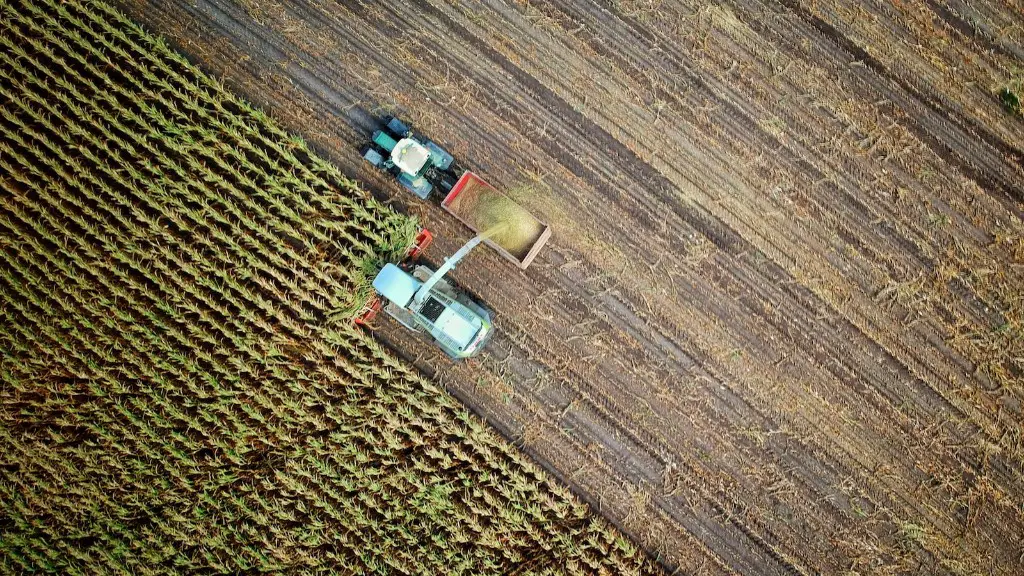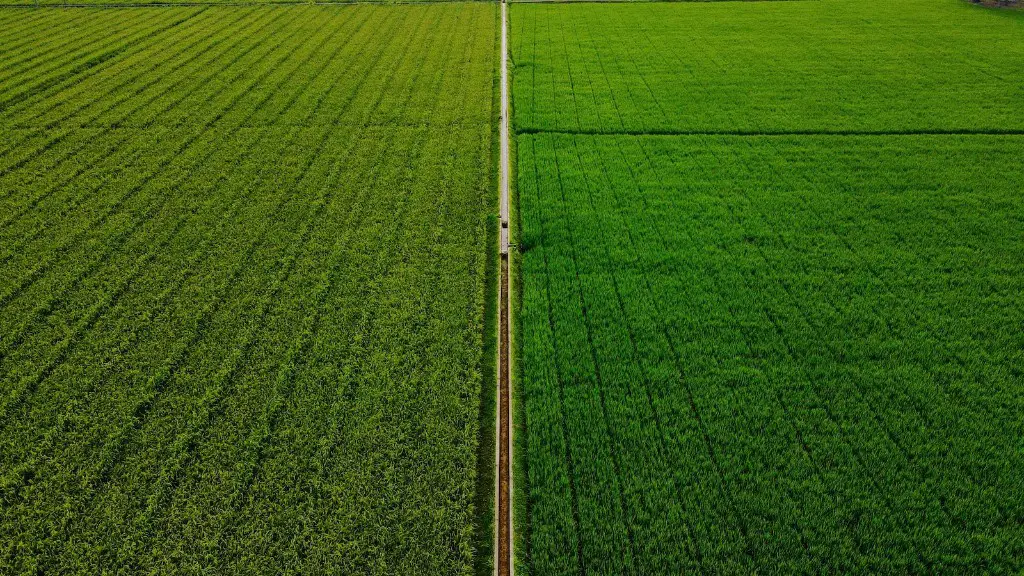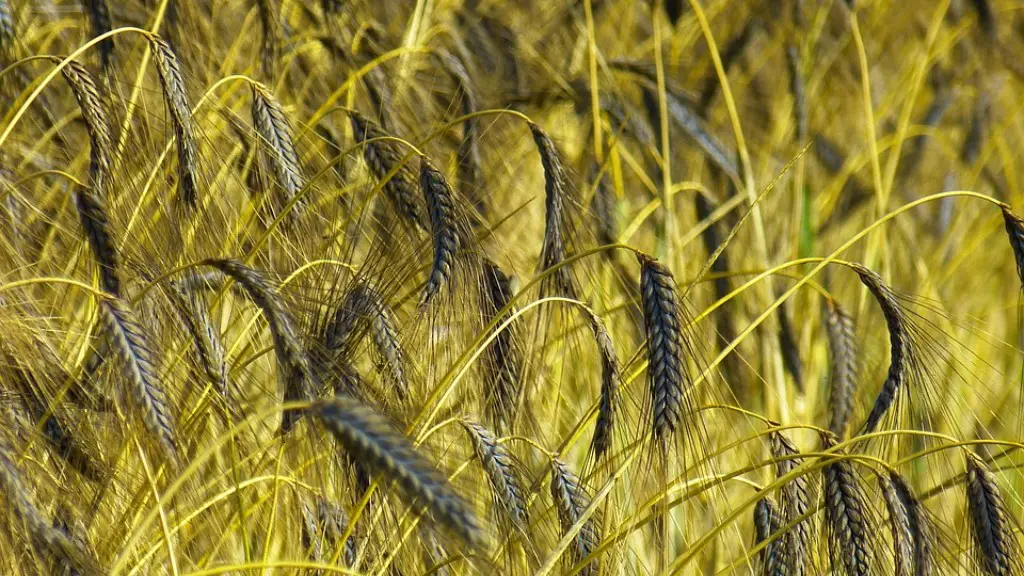Biodiversity provides many benefits to agriculture, including pest and disease control, pollination, and soil health.
Pest and disease control: By having a variety of different species in an agricultural ecosystem, pests and diseases are less likely to decimate a crop. Additionally, if a crop is hit by a pest or disease, a diversity of species can help buffer the effects.
Pollination: Many crops, such as fruits and vegetables, require pollination in order to produce a harvest. Biodiversity provides a greater chance that pollinators will be present to do their job.
Soil health: Soil health is essential for agriculture as it provides the foundation for plants to grow. Biodiversity helps maintain soil health by preventing soil erosion and providing nutrients through decomposition.
There are many ways in which biodiversity can benefit agriculture. For example, having a diversity of crop species can help to ensure that farmers have a reliable source of food even in years when conditions are unfavorable for a particular crop. Biodiversity can also provide farmers with a source of new and improved crop varieties, as well as natural pest control.
How does biodiversity benefit medicine and agriculture?
Biodiversity is essential for food production, as it provides a variety of food plants, pollination, pest control, nutrient provision, genetic diversity, and disease prevention and control. Medicinal plants and manufactured pharmaceuticals also rely on biodiversity.
Agricultural biodiversity is essential for food security and sustainable agriculture. It helps farmers adapt to changing conditions, provides a source of new genetic material for crop improvement, and can provide a buffer against pests and diseases. Conserving and sustainably using agricultural biodiversity is therefore crucial for food security and sustainable agriculture.
How does biodiversity help agriculture quizlet
Biodiversity is important to agriculture for a variety of reasons. First, pollinators such as bees and butterflies are essential for the pollination of many crops. Second, biodiversity can provide protection against disasters such as floods and droughts. Third, a variety of plant and animal species can provide a source of food for both farmers and livestock. Fourth, biodiversity can help control pests and diseases. Finally, new varieties of crops and animals can be developed from the genes of wild relatives.
Most people are unaware of the incredible biodiversity that exists in the soil. In fact, the soil is the most biologically diverse part of the earth. The farm benefits when the soil’s natural productivity is managed sustainably. When soil is rich in biodiversity, reliance on purchased inputs declines, while land productivity and income potential increase.
What is the relationship between agriculture and biodiversity?
Agriculture is the main driver of biodiversity loss. It is responsible for converting natural habitats into intensely managed systems, and for releasing pollutants, including greenhouse gases. The expanding impacts of agriculture are due to changing consumption patterns and growing populations.
Agriculture is based on biodiversity. It has facilitated the development of farming systems since the first development of agriculture some 10,000 years ago. This concept is the root and variation within all plant and domesticated animal species. Agriculture is based on the interaction between different species of plants, animals, and microorganisms. Each species has a role to play in the agricultural ecosystem.
What are the benefits of biodiversity in medicine?
Biodiversity may help regulate infectious diseases and reduce pathogen success by controlling pathogen host populations through competition and predatory interactions. This can help reduce the spread of disease by reducing the population of potential hosts. Additionally, biodiversity can help reduce pathogen success by providing predators that can help control pathogen populations.
Biodiversity is extremely important for maintaining human and animal health. A wide variety of plants, animals, and fungi are used for medicine, essential vitamins, painkillers, and more. Natural products have been recognized and used as medicines by ancient cultures all around the world.
What is the importance of biodiversity to medicine
Biodiversity is the variety of life found in a place. It includes the number of different species, the number of individuals of each species, and the different types of ecosystems.
Biodiversity helps fight disease in two ways. First, the more species there are, the more likely it is that one of them will have a chemical that can fight a particular disease. Second, biodiversity helps keep ecosystems healthy, and healthy ecosystems are more resistant to diseases.
For example, 25% of drugs used in modern medicine are derived from rainforest plants while 70% of cancer drugs are natural or synthetic products inspired by nature. This means that every time a species goes extinct, we miss out on a potential new medicine.
Biodiversity is essential to our health and well-being in a variety of ways. It contributes to the formation of the human biome, helps us adapt to stress in the environment, and supports all forms of livelihoods. It may also help regulate disease. Biodiversity is necessary for physical, mental, and spiritual health and social wellbeing.
What are the 5 importance of biodiversity?
Biodiversity is essential for the proper functioning of ecosystems. It provides vital ecosystem functions such as soil fertilization, nutrient recycling, pest and disease regulation, erosion control and crop and tree pollination. biodiversity is also a source of food and medicine for humans.
Biodiversity is important for 6 main reasons: ecosystem productivity, medical discoveries, natural beauty and recreation, survival of the species, waste disposal, and economic benefits.
Ecosystem productivity refers to the ability of an ecosystem to produce the resources necessary for its continued existence. A healthy ecosystem is able to provide food, water, and other resources in a sustainable way.
Medical discoveries are often made through the study of biodiversity. Many modern medicines are derived from plants, and it is estimated that only a small fraction of the world’s plants have been studied for their medicinal properties.
Natural beauty and recreation are two of the main reasons people visit national parks and other protected areas. Biodiversity is essential to the maintenance of these areas.
Survival of the species is another important reason to preserve biodiversity. Every species has a unique role to play in the ecosystem, and the loss of even a single species can have serious consequences.
Waste disposal is another important reason to preserve biodiversity. Healthy ecosystems are able to recycle waste products and keep them from becoming pollution.
Finally, there are economic benefits to preserving biodiversity. Healthy ecosystems provide a wide range of services that are important to the economy, such as pollination, water pur
What are the 4 reasons why biodiversity is important
YouTube is a great platform for sharing videos about wildlife and the benefits of healthy ecosystems. Wildlife supports healthy ecosystems that we rely on, so it’s important to keep biodiverse ecosystems intact. Biodiversity is an essential part of the solution to climate change, and it’s also good for the economy. Biodiversity is an integral part of culture and identity, so it’s important to protect and preserve it.
Agricultural biodiversity is essential for food security and sustainable agriculture. It includes the variety and variability of animals, plants and micro-organisms that are used directly or indirectly for food and agriculture. Agricultural biodiversity includes crops, livestock, forestry and fisheries. It is important for food security because it ensures a healthy and nutritious diet, and sustainable agriculture because it helps to conserve natural resources and protect the environment.
What are the 3 importance of biodiversity?
Biodiversity offers a range of benefits to societies, including material welfare, security of communities, resilience of local economies and human health. The term ‘ecosystem services’ is often used to describe the benefits that humans receive from healthy ecosystems.
Biodiversity is the variety of life on Earth. This includes the different plants, animals and microorganisms that make up our ecosystems. Healthy ecosystems provide a range of benefits to humans, including food, clean water, pollination (which is necessary for the production of many crops) and flood control.
Biodiversity is under threat from a range of human activities, including habitat destruction, pollution and the introduction of non-native species. This can have a negative impact on the ecosystem services that we rely on. For example, the loss of natural habitat can lead to the decline of populations of pollinating insects, which can have a knock-on effect on crop production.
It is therefore important to protect and conserve biodiversity. This can be done through measures such as creating nature reserves and protected areas, and by promoting sustainable land management practices that minimise the impact on natural habitats.
Biodiversity is important for ecosystems for many reasons. First, it provides the food we eat. Second, it helps to keep us healthy. Third, it supports our ecosystem. Fourth, it safeguards nature as we know it. Fifth, it helps our economy to thrive. Sixth, it can potentially provide a solution to climate change.
Final Words
Biodiversity can benefit agriculture in a number of ways. For example, a more diverse range of crops can help to prevent the spread of diseases, as there is less chance of all the crops being affected by the same disease. A greater variety of plants can also provide a more complete diet for livestock. In addition, a more diverse range of plants can provide a more diverse range of habitats for beneficial insects, such as pollinators, which can help to improve crop yields.
Biodiversity benefits agriculture in many ways. First, diversity among crop species helps protect against pests and diseases, which can devastate mono-crops. Second, a diversity of plant species results in greater soil fertility and better water retention in the soil. Third, having a variety of animals helps to keep the ecosystem in balance, which in turn benefits agriculture. Finally, biodiversity simply makes for a more beautiful and interesting landscape, which can attract more tourists and add to the local economy.





